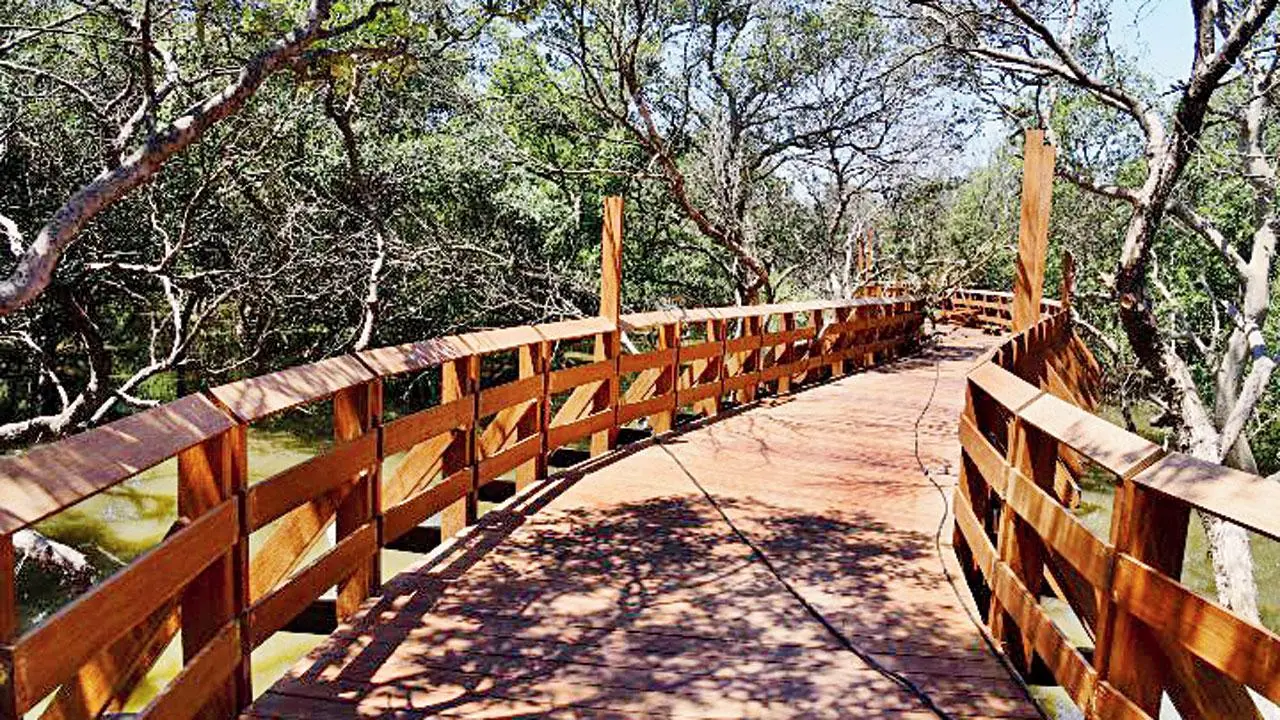Mumbai’s growing efforts to blend urban development with ecological preservation are set to take a significant leap forward as the city prepares to unveil India’s first dedicated mangrove park in Gorai. Slated for a mid-August launch, the Rs 33.43 crore facility is nearing completion and promises to offer a unique nature-based recreational experience that places environmental awareness at its core.
Developed over eight hectares, this mangrove park is spearheaded by the Maharashtra government’s Mangrove Cell and forest department. Envisioned as a space for both education and eco-tourism, the park is designed to highlight the critical role of mangroves in climate resilience, coastal protection, and biodiversity conservation—topics of increasing relevance amid rising concerns over urban sustainability.
One of the park’s most distinctive features is a 750-metre-long elevated wooden boardwalk. Constructed using eco-sensitive materials and techniques that minimise disruption to the fragile wetland ecosystem, the walkway snakes through dense mangrove clusters and ends at a scenic deck overlooking the creek. The design draws inspiration from Mumbai’s Malabar Hill Skywalk but is adapted for a natural habitat, creating a rare opportunity for visitors to interact with a living coastal forest without harming it.In addition to this immersive nature trail, the park will feature an 18-metre-high watchtower, ideal for birdwatchers and photographers. The area is known to host several species of migratory and local birds, making the park a potential hotspot for urban wildlife enthusiasts and researchers alike.
At the centre of the facility is a two-storey Nature Interpretation Centre, envisioned as a learning hub for students and eco-curious citizens. The building will include interactive displays, educational exhibits, a reading room focused on mangrove-related literature, and visual installations that narrate the story of India’s coastal biodiversity.To enhance the visitor experience, the site will house a rooftop café and a gift shop offering nature-themed products, further integrating leisure with environmental consciousness. Solar panels will meet the park’s energy requirements, and all structures have been designed to be non-intrusive, elevated, and harmonised with the terrain.
While entry to the park will require a ticket, officials clarified that the proposed entry fee, currently pending government approval, will be allocated for the long-term maintenance and sustainability of the facility. The pricing structure is expected to strike a balance between accessibility and operational needs.The project, first initiated in 2021, is classified under reserved forest land—ensuring its protection under existing ecological laws. Final touches including landscaping, lighting, and signage are now in progress.
Though public figures have sought credit for the initiative’s origins, the broader significance of the Gorai Mangrove Park lies in its potential to become a model for future urban green infrastructure. In an era where metropolitan cities grapple with rising temperatures, declining biodiversity, and shrinking public spaces, the park exemplifies how ecological preservation can coexist with civic leisure and education.
As Mumbai prepares to open its gates to this pioneering ecological sanctuary, the project stands as a testament to what forward-thinking city planning can achieve—an urban space that not only protects nature but brings people closer to it.
Also Read : Mumbai’s Mithi River Drowns in Sewage and Corruption


